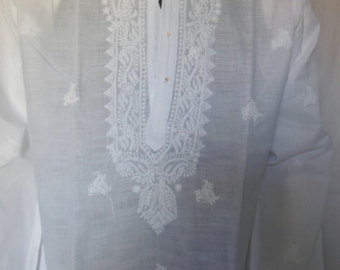By
Wale Ayinla
When one is born and bred into the thick hands of abject penury, we often call it fate but when one decides not to abscond from those hands which sting more than a thousand bees feeding on their prey, we call it misfortune.
He rambled over the streets of the University of Lagos in tattered shorts, roughened shirt and bathroom slippers. Everything about him; his hair, manner of movement and his countenance were inordinate, except for the tincture of hope that lied beneath his nose, on the verge of his lips; his smile. It gleamed thoughts of rekindled hope amidst the torment of lack of every essential thing of life bestowed on him by his parents.
Born into the house of a peasant farmer, who only lived on the inheritance his father left for him: a mud house and a small farm, and a woman who lived all her life as a full housewife, devoted only to the nurturing of her children and professing enormous affection to her husband whenever he was in sight.
“I’m so lucky to have a husband like Kabiru.” Mama once said, when she and her friends were gossiping about Baba Titi who left his wife and family for an enstranged woman. She cherished her husband more than anything in the world.
Poverty showed its cruel side when Mama gave birth to her fifth child and son, Kayode. Feeding three times a day became synonymous to asking a dwarf to pluck a mango from its tree without straining his legs and hands. Kabiru suffered theft after theft, which summounted him to have little harvest and all he harvested was being fed upon by his family.
“Let’s suspend the academics of the four boys and focus on Kayode’s, he’s too small and he needs to get it right now.” Mama suggested, after the other four brothers were being dismissed from Ewa Community High School for unpaid tuition fee.
“That’s a good suggestion, the other brothers can join me on the farm.” Kabiru agreed, knowing that he would be relieved of his tough times there.
His four brothers envied the love clustered on him by their parents, the school and the village at large. He had a distinct feature amongst his peers, his smile. Even while crying, a glimpse of a smile can be noticed on his lips. He coupled it with a good brain. Being the overall best student of Ewa Comunity High School and being awarded a scholarship to study at the University of Lagos, was a feat none of his peers ever imagined to attain.
“If only I were as brilliant as Kayode, I would command every lass of this village to my house, to sleep with them all in the pretence of studying.” Fashi lamented, when Kayode was being called to receive the scholarship documents.
“That’s why you remained a lackluster.” Dayo interposed. The other students who were in the environs squealed.
Life on campus was diverse, unlike in the village. From the nearness of the flying aeroplane to the ground; to the ambience characterized with glitz and glamour; to the exquisite cars that rode on the tarred road; to the almost unclad dressings of lasses; down to trousers falling beneath the buttocks of lads, in the name of sagging. Kayode had, because of his intellectual prowess, maintained a cordial relationship with both lasses and lads of the Mass Communication department. Lecturers gazed at him after every sentence to confirm if what they said was right in order to avoid being disgraced by him at the end of the lecture. He had once questioned a lecturer who mentioned that “euphemisms should be avoided when writing a press release,” but included it in an appendix given to the students to peruse as an example.
“Sir, in the appendix given to us, you included ‘economical with the truth’ which is a euphemism for liar. Will journalists be overlooked for their mistakes?”
Professor Bada stared quaintly, stupefied. He muttered some words and finally gulfed out.
“Journalists must not make mistakes. I’m sorry for my error.”
For the past thirty years of the Professor’s career, he had never once been questioned for an error made by him. Kayode became every lecturers’ favourite and he was called after every lecture to contribute to the topic taught.
Bimpe flung the door open without knocking. Kayode was alone in the room, sitting on his mattress and studying as usual.
“What gave you the effrontery to barge into my room? What if I was unclad?” He hurled, unfettered by the comeliness of the lass standing before him, and became bristled.
“You don’t have to bicker on this, Kayode. I only came here to intreat your knowledge on MAC124’s assignment and also give you the birthday gift I bought for you.” She jerked forward, with a present wrapped in one hand, and a gucci bag strapped to the other shoulder.
“It’s your birthday, you know?” She added and tinged her face.
This question echoed in his head because he had never talked to anyone about his birthday.
“How do you know it’s my birthday?” He inquired, now twirling towards her. She advanced closer to him. Her attire became more evident than when she was standing at the door. She wore a short black skirt and a more revealing blouse, which through it, one could see her cleavage. He became dumfounded and uncomfortable as her dressing retrograded his thoughts.
“Won’t you even ask me to sit down?”
“Oh I’m sorry, you can sit beside me.” He shifted an inch and she sat beside him, on the mattress.
“Here is the gift.” She handed it over and made an exotic gaze at him.
“Thank you very much. What’s in it?”
“You just open it.”
He was impatient while unwrapping the presents and myriads of thoughts ran through his mind.
“Wow! it’s a kaftan. I’ve always wished to have a kaftan but never thought of the colour.”
“I conjecture white will look good on you.”
“Thanks very much, Bimpe. I hope to repay you for this one day.”
“Yes you sure will, in kind.” She muttered the last words.



No Comments Yet!
You can be first to comment this post!